Shoulder Pain Physiotherapy in Hong Kong - Rotator Cuff, Frozen Shoulder & Arthritis Treatment
Relieve pain. Regain control. Feel like yourself again.
In Hong Kong, many people are suffering from shoulder pain. Its main causes may include injury, fracture, inflammation, arthritis, instability, degeneration, tumor, or infection. People living with shoulder pain cannot play, live, and work at their best; so effective physiotherapy is essential to reduce pain and restore motion.
We at Total Health By Hong Kong Sports Clinic combine hands-on therapy, evidence-based assessment, and progressive rehabilitation programmes tailored to your busy lifestyle. In this page, you will learn the most common shoulder conditions, their symptoms and treatment approaches, and who will benefit the most.
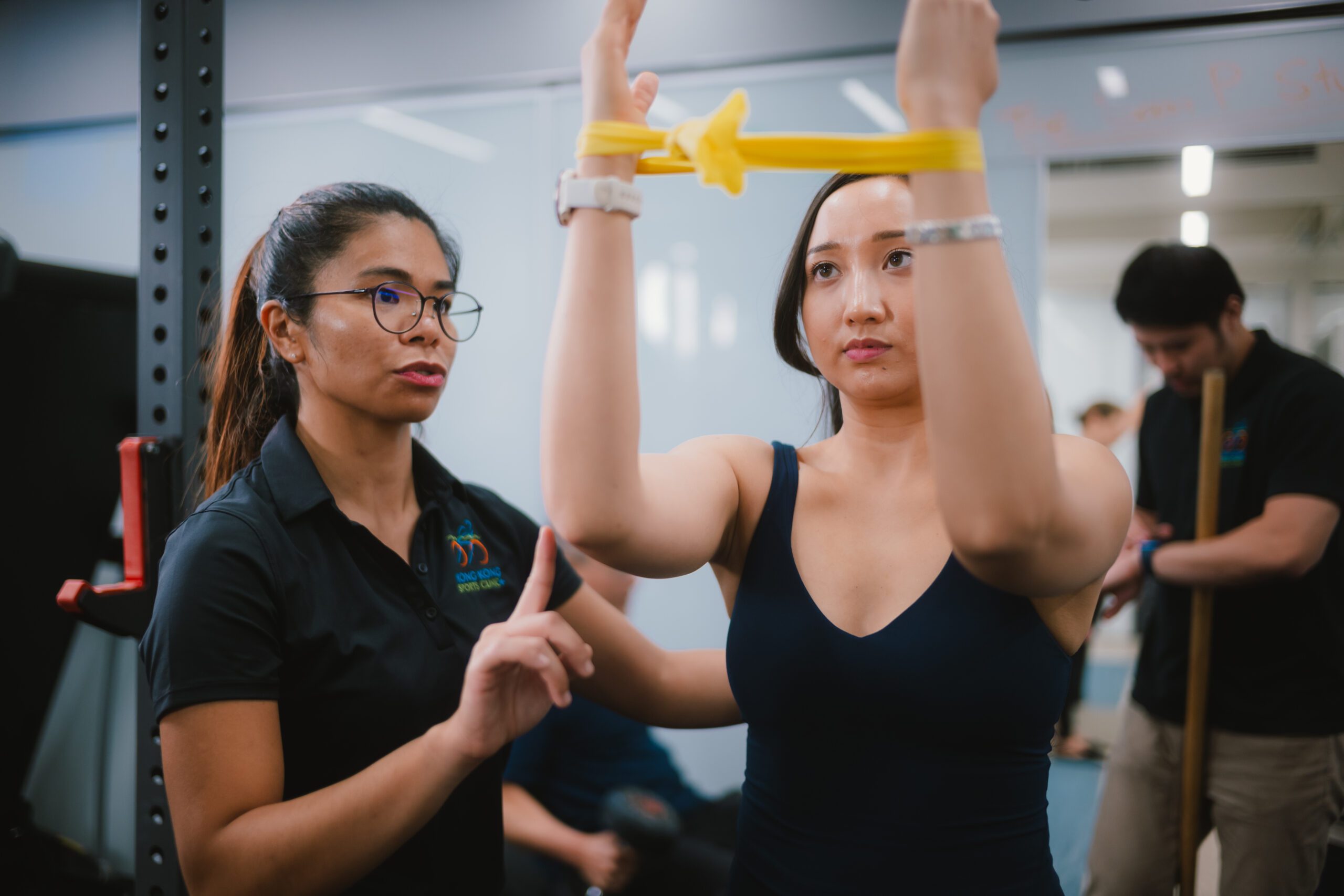
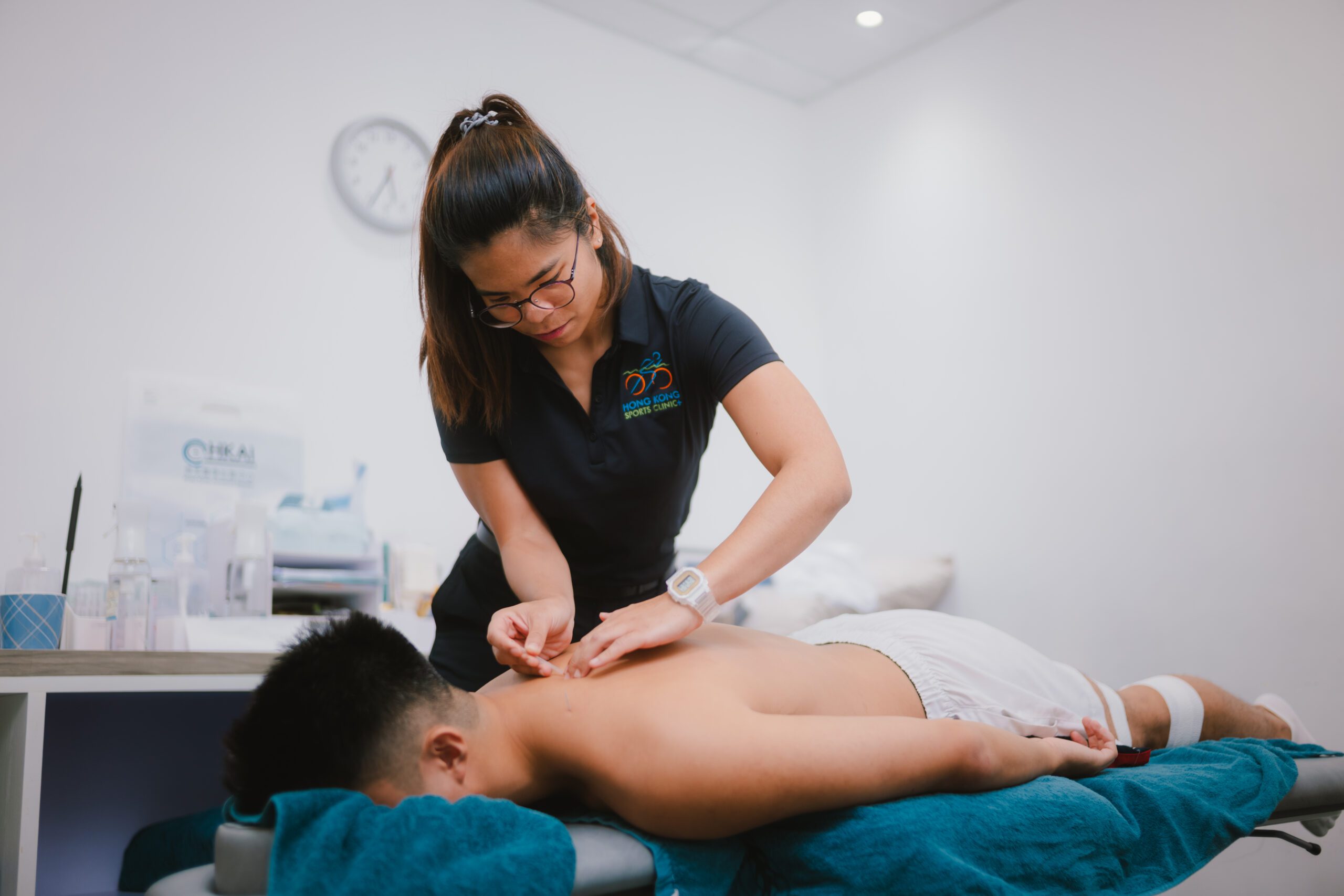
What is Shoulder Pain Physiotherapy?
Shoulder pain physiotherapy involves evaluating the root cause of shoulder pain (poor posture, sports injury, or age-related condition) and offering targeted treatment approaches to relieve pain. Physiotherapists in Hong Kong assess your movement and pain patterns and use evidence-based techniques such as posture correction, manual therapy, exercise prescription, soft tissue techniques, education, and electrotherapies to restore function.
Shoulder pain physiotherapy helps patients return to work and perform daily activities without discomfort, making it an effective solution for long-term recovery and wellness.
Our Services at Hong Kong Sports Clinic
We at Total Health By Hong Kong Sports Clinic offer multi-disciplinary musculoskeletal care such as sports rehabilitation, physiotherapy, manual therapy, and sports-specific conditioning. Our comprehensive shoulder services are:
- Initial assessment (functional baseline, specific test, movement analysis)
- Diagnosis and collaborative goal setting
- Targeted exercise programmes and hands-on manual therapy
- Adjunct treatment (therapeutic ultrasound, dry needling, and progressive strength and scapular control program)
- Pre-surgical strengthening, if surgery is indicated
- Post-operative rehabilitation pathways.
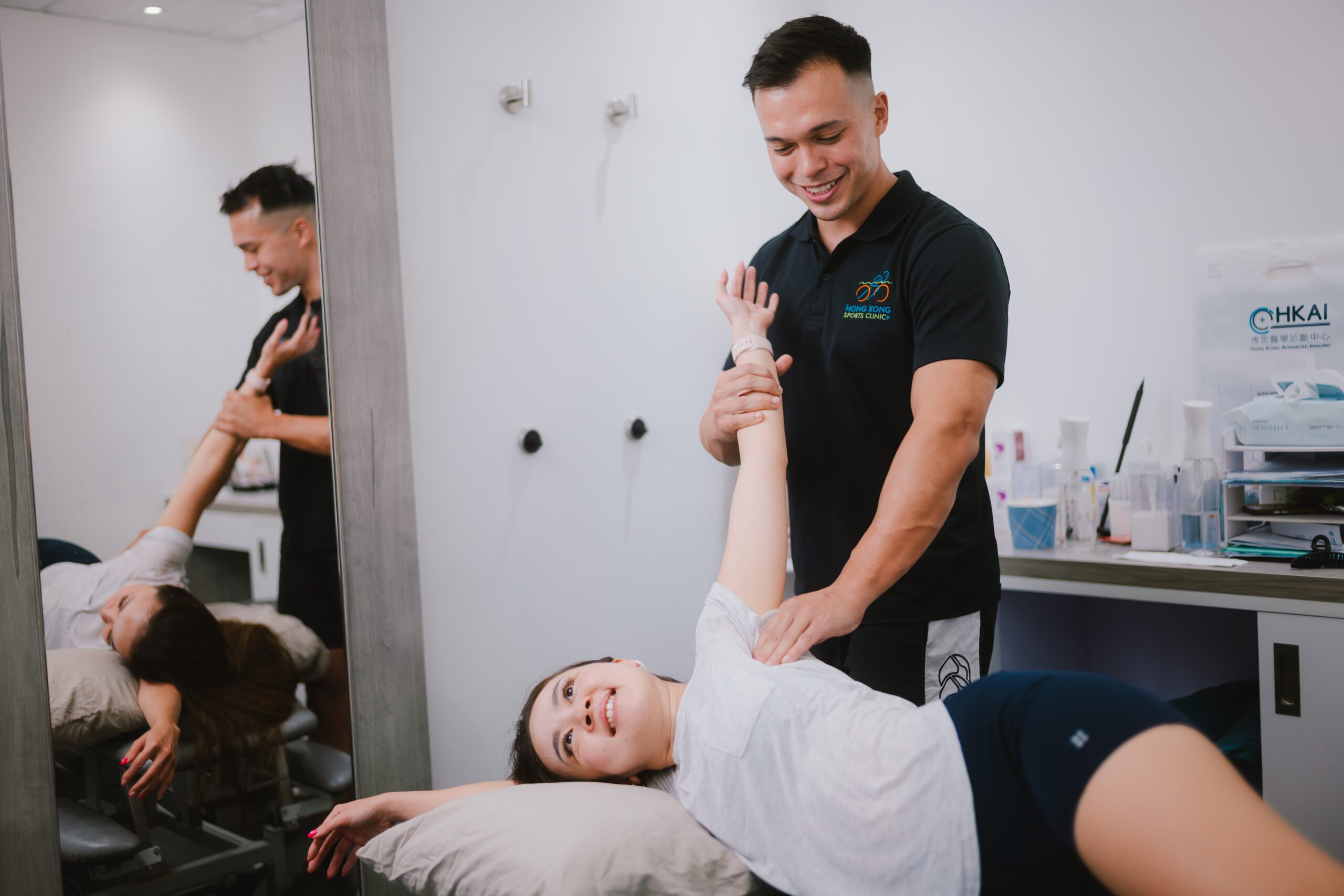
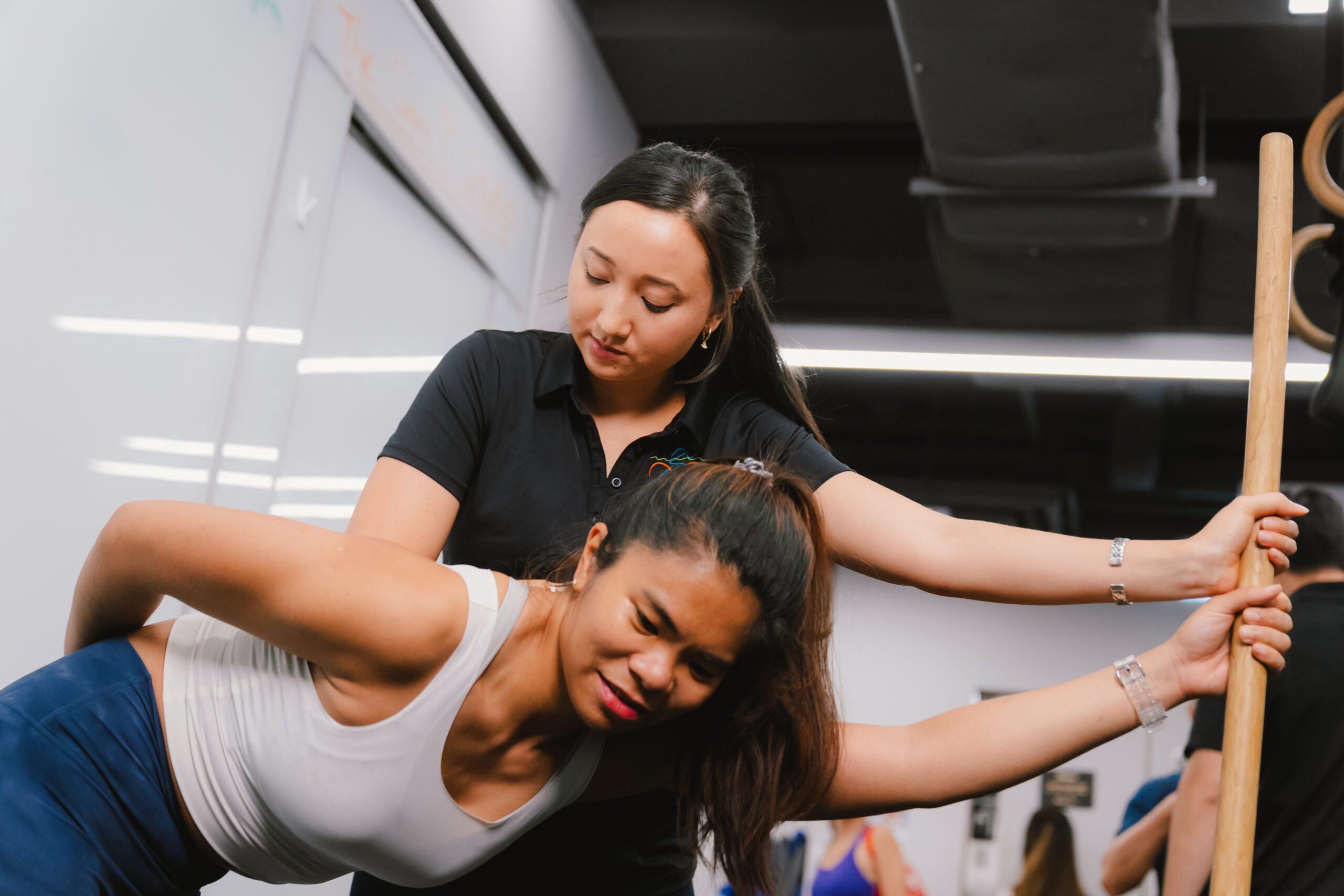
Common Shoulder Injuries We Treat
Athletic populations and sedentary groups often face shoulder pain and stiffness, triggered by poor posture, repetitive overhead movements, sudden trauma, or heavy lifting. If not treated, it will affect your daily life activities and quality of life. The most common shoulder injuries are:
1. Shoulder Impingement & Rotator Cuff Tendonitis
The rotator cuff is made up of four muscles (supraspinatus, infraspinatus, teres minor & subscapularis), moving and stabilizing your shoulder joint. Overuse tendinopathy and degenerative tear due to aging or injury can cause pain, difficulty, and weakness with lifting or overhead activities. Timely physiotherapy can alleviate pain and avoid surgery.
On the other hand, shoulder impingement occurs when the bursa or tendons in your shoulder get compressed during arm movements, causing irritation and pain with overhead movements. It is common in older adults, office workers, and athletes.
Signs and Symptoms
- Weakness when rotating or lifting the arm
- Persistent shoulder pain, particularly at night or when lying on the affected side
- Grinding, popping, or clicking sensation in the shoulder
- Difficulty performing overhead activities
- Limited range of motion
- Shoulder stiffness
Causes
- Poor posture that narrows the shoulder space
- Repetitive overhead activities such as painting, swimming, or lifting weights
- Sudden trauma or injury
- Age-related degeneration
- Bone spurs or shoulder instability
Treatment
At Total Health By Hong Kong Sports Clinic, our Physiotherapists perform a comprehensive assessment and start a progressive treatment protocol to expedite recovery. Our approach includes active rehabilitation, manual therapy, and targeted exercise to reduce pain and improve range of motion.
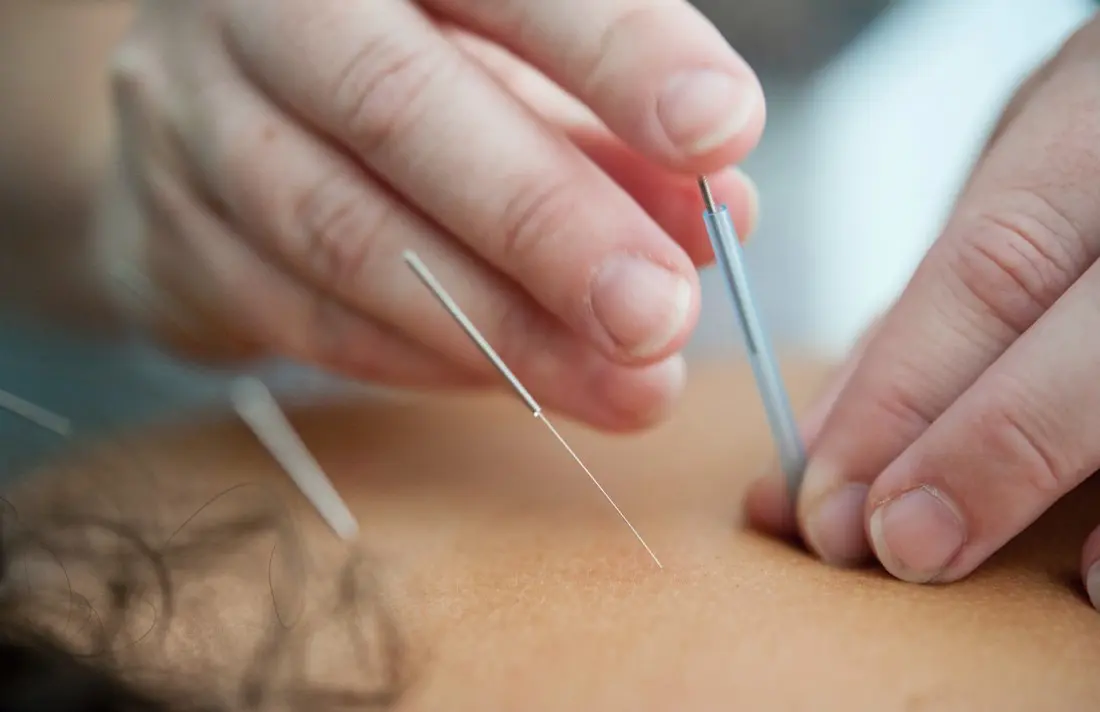
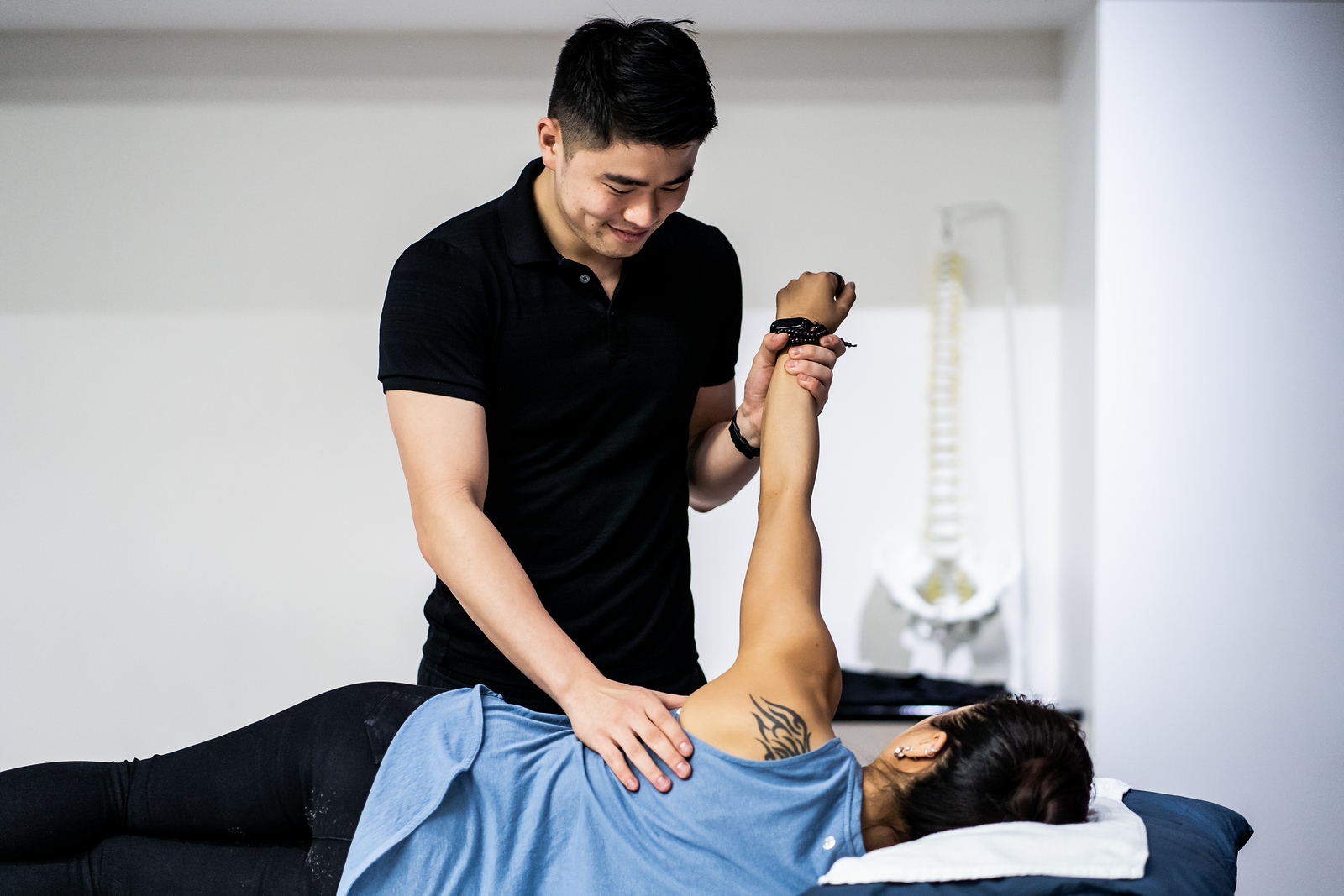
2. Frozen Shoulder
Frozen shoulder (adhesive capsulitis) is characterized by progressive pain and stiffness, affecting millions worldwide. It targets the capsule of the shoulder joint, causing inflammation, contraction, and a significant reduction in the movement of the shoulder joint. Frozen shoulder typically follows a painful freezing phase and can last months without intervention.
Signs and Symptoms
- Persistent pain (freezing stage)
- Stiffness in the shoulder (frozen stage)
- Difficulty with routine activities such as wearing clothes, combing hair, or reaching overhead
- Disturbed sleep (insomnia) due to shoulder discomfort.
Causes
Primary cause is elusive; however, its secondary causes may include underlying disease (diabetes or stroke) or conditions that affect mobility, such as surgery, fracture, or dislocations.
Treatment
Physiotherapy focuses on gentle mobilisation, pain control, and graded stretching to restore mobility. Our comprehensive and tailored treatment approach for frozen shoulder includes:
- Use of modalities (dry needling and ultrasound therapy) to manage pain and inflammation
- Manual therapy, such as mobilization, massage, and manipulation
- Exercise therapy, starting with gentle stretching to more active strength
- Education and support, letting people manage their condition at home
3. Glenohumeral (Shoulder) Osteoarthritis
Glenohumeral (shoulder) osteoarthritis is a degenerative joint condition in which the protective cartilage in the ball-and-socket joint of the shoulder gradually wears down, leading to stiffness, pain, and reduced mobility.
Signs and Symptoms
- Deep shoulder pain
- Swelling
- Difficulty lifting the arm overhead or behind the back
- Grinding or clicking sensations
Causes
- Aging
- Previous shoulder injuries
- Genetic predisposition
- Repetitive overuse
Treatment
Physiotherapy plays a crucial role in glenohumeral (shoulder) osteoarthritis. We at Total Health By Hong Kong Sports Clinic treat this condition by focusing on reducing pain, strengthening surrounding muscles, correcting posture, and improving joint flexibility. Our comprehensive approach improves stability and function and avoids surgical intervention.
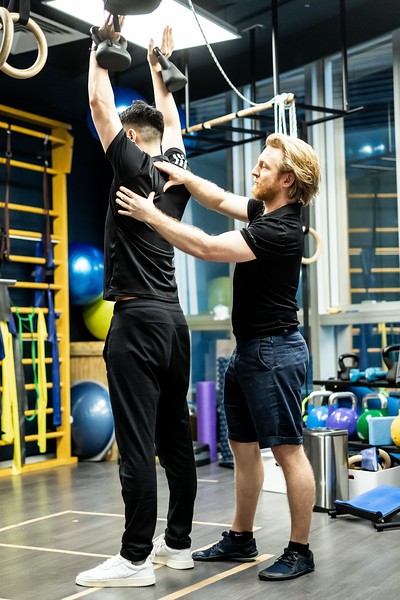
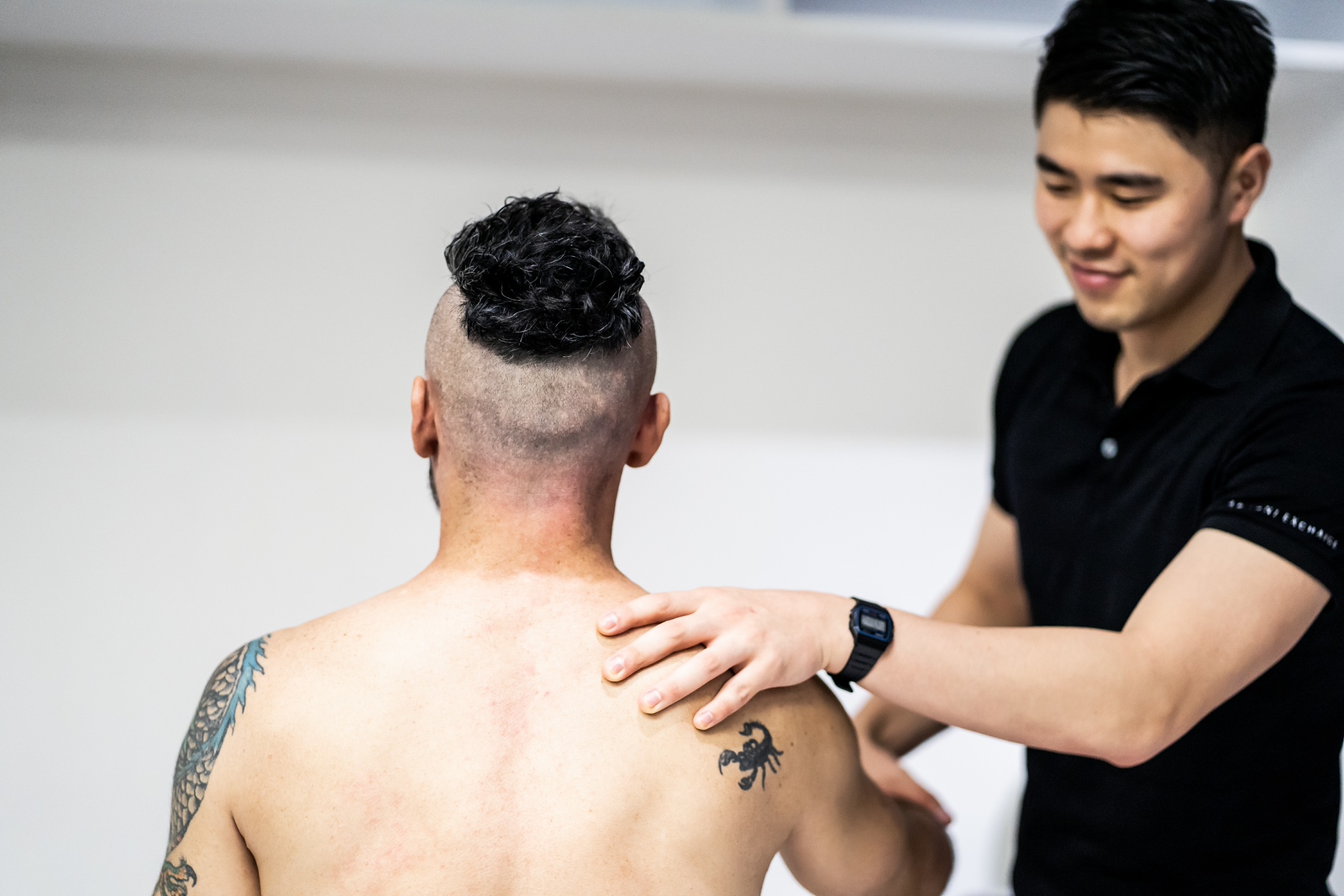
4. Labral Tears and Shoulder Instability
This condition occurs when the labrum (the ring of cartilage) around the shoulder socket is damaged, causing the shoulder to slip out or feel unstable.
Signs and Symptoms
- Weakness
- Deep shoulder pain
- Repeated dislocation, especially during sports or overhead activities
- Clicking or catching sensations
Causes
- Age-related wear and tear
- Traumatic injuries
- Overuse in athletes like throwers or swimmers
Treatment
Our physiotherapists focus on stabilizing the shoulder via targeted strengthening, restoring joint alignment via manual therapy, progressive exercise programmes, and posture correction to prevent recurrent injuries and rebuild stability.
How We Diagnose: Your Initial Appointment
Diagnosing shoulder pain begins with your:
- Detailed medical history
- Physical examination, including assessing posture, range of motion, muscle strength, and joint stability
- Onset, type, and location of pain
- Activities that worsen or relieve symptoms
- Any past injuries
- Orthopedic tests that identify rotator cuff injuries, labral tears, impingement, or frozen shoulder
- Further investigations, if needed, we recommend ultrasound, MRI, or X-ray to get a clear image of the underlying conditions
At Hong Kong Sports Clinic, we pinpoint the exact cause of shoulder pain and design a tailored plan for effective recovery.
Who Benefits Most from Shoulder Physiotherapy?
Although anyone with non-emergent shoulder pain can benefit, specific groups that benefit most are:
Athletes
- For peak performance, golfers, tennis players, throwing athletes, and swimmers need sport-specific shoulder physiotherapy.
Office workers
- Desk-based professionals and office workers usually suffer from impingement and scapular dyskinesis due to repetitive mouse/keyboard use or forward posture. So, ergonomic fixes and targeted rehab prove to be effective for them.
Manual labourers
- Tradespeople and manual labourers get repeated loads on their shoulders. Treatment approaches focusing on safe-lifting mechanics, endurance, and graded reintroduction let them perform their work more efficiently.
Older adults
- In older adults, arthritis and rotator cuff disease are common. Timely physiotherapy preserves functions and avoids surgery.
Post-surgical patients
- After labral surgery, rotator cuff repair, or shoulder replacement, structured rehab is needed for speedy recovery.
Timeline of Recovery — What to Expect
Your recovery depends on the severity of your condition and diagnosis; a typical timeline may include:
- Frozen shoulder — Variable and can last several months; however, with guided physiotherapy, many patients regain most motion within 3 to 9 months.
- Impingement or acute tendonitis — With focused rehab, it may take 4-8 weeks.
- Rotator cuff tendonitis — Minor tears take 6-12 weeks, while larger tears may take longer.
- Post-operative rehab — It is structured for 3-6 months based on the procedure.
We at Total Health By Hong Kong Sports Clinic set specific goals, track improvements, and reassess every 2 to 6 weeks, ensuring effective recovery.
Tailored Injury Solution at Total Health By Hong Kong Sports Clinic
We at Total Health By Hong Kong Sports Clinic, discover the cause of shoulder pain, and not only the symptoms. Our physiotherapy treatment is combined with effective rehabilitation programs, helping you achieve your goals and live pain-free. Our dedicated team offers personalized treatment solutions and navigates you throughout your recovery journey, enhancing your quality of life and improving shoulder mobility.
So, if shoulder pain is affecting your life, choose us and embark on a guided journey to return to the activities you love.
Frequently Asked Questions
Can frozen shoulders be treated with physiotherapy?
Frozen shoulders can be treated effectively with physiotherapy. Joint mobilization, targeted exercise, and tailored rehabilitation programs help alleviate pain, restore movements, reduce stiffness, and support fast recovery.
Can you have a frozen shoulder and a torn rotator cuff at the same time?
Yes, frozen shoulders and a torn rotator cuff can occur at the same time. In patients with overlapping shoulder problems, stiffness develops alongside pain or weakness, making diagnosis and treatment complex.
What hormone deficiency causes frozen shoulders?
Frozen shoulder is often linked to hormonal imbalance, especially low estrogen levels in women during menopause or thyroid hormone disorder (hyperthyroidism or hypothyroidism). These deficiencies increase joint inflammation and stiffness, making the shoulder more prone to freezing.
What is the best physical therapy for shoulder pain?
For shoulder pain, the best physical therapy involves the combination of strengthening of the rotator cuff and scapular muscles, manual therapy, gentle stretching, soft-tissue mobilization, and range-of-motion exercise. This practice eases muscle tension and restores joint mobility.
Does physiotherapy hurt?
Physiotherapy is not painful, but you may feel mild discomfort as your body strengthens or stretches. Our therapist guides you safely and ensures treatment feels effective yet manageable.
Can rotator cuff pain cause nausea?
The rotator cuff does not directly cause nausea; however, severe or persistent shoulder pain can trigger dizziness, fatigue, or nausea. If nausea is frequent, consult your doctor to rule out other underlying issues.
Can physiotherapy fix a full-thickness rotator cuff tear?
Physiotherapy cannot fully heal a full-thickness rotator cuff tear, but it can reduce pain, improve shoulder strength, and restore function. In severe cases, surgery may be required.
Do I need an MRI or X-ray before physiotherapy?
Most people do not need an MRI or X-ray before starting physiotherapy unless there is a serious injury, trauma, or red-flag symptoms. Physiotherapists assess your condition first and only recommend scans if needed
How often will I need appointments?
At Total Health By Hong Kong Sports Clinic, the frequency of your physiotherapy appointments depends on your condition and recovery goals. Most patients start with 1-2 sessions per week and then gradually reduce visits as progress is made.
Be Inspired
Be Informed
Reach Your Goals

